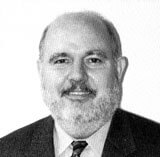The lion lies down with lambs at forum on Stonewall
It was a surreal scene at the New York Historical Society on Central Park West on June 2 as veterans of the 1969 Stonewall rebellion in Greenwich Village politely shared a stage with the police architect of the raid. The ex-police officer was applauded by many in the crowd of several hundred for precipitating the riot.
But most of the attention from moderator Eric Marcus and the audience was directed at Seymour Pine, the deputy police inspector who orchestrated the raid to try and shut down the bar that night and was speaking publicly about it for the first time.
Raids on gay bars were “very common” in those days, said Pine, because gay people “never gave us any trouble,” until that night. Before that, “everybody behaved,” he said and cops were able to make easy arrests. Now 85 years old, Pine acknowledged that police were “very prejudiced” in 1969 and “didn’t know what gay people were all about. To this day, I wouldn’t know how to classify a gay person.”
The routine raids on gay bars in that era often led to humiliating arrests, and sometimes job dismissals and suicides. But Pine said that the police attitude at the time was: “We’re going down to rout the fags.”
Pine was applauded when he was introduced, and he was praised for his “courage” in being there. Carter noted that the ex-cop was generous with his time in being interviewed for the book, contributing essential information. An audience member stood up and thanked Pine because he conducted the raid that led to “our liberation.”
Perhaps by being there Pine was making some sort of statement that he knew police practice at the time was evil, but he did not explicitly say so. Instead, he emphasized that the police were just doing their jobs. When pressed about whether he owed the audience an apology, Pine offered a half-hearted one.
“There was too much obsequiousness,” said veteran activist Bill Dobbs. “It was beyond politeness. It says something about us as a people,” noting that we are “still being targeted and hunted” for engaging in sex in this country.
Pine offered a play-by-play of how the raid went awry, when people targeted for arrest resisted filing out and the event turned into a riot. The plainclothes police in the bar ended up barricading themselves inside, unable to get reinforcements from the Sixth Precinct. Radio orders to send back-up police kept being countermanded by an unknown source, presumably the local precinct that resented Pine’s public morals special unit operating in its territory. The Sixth Precinct was widely reputed to be on the take from the Mafia-run bars—something Pine would not confirm.
Marcus introduced Carter as having written the “definitive book on the Stonewall Riots,” and the evening was chock-full of new information on that event, including the story of the extortion ring run out of the bar by such characters as Ed Murphy, who went on to be a revered figure in the gay community as the organizer of the festival that follows the Pride parade every June. Carter asserts that that J. Edgar Hoover, the closeted FBI director, and his partner/assistant Clyde Tolson were subjected to the extortion and that a young Latino man with whom Murphy was involved was murdered.
Carter’s thesis is that no one thing sparked the Stonewall Riots, but a combination of about 25 factors fueled it.
Leitsch was a gay leader before Stonewall, assuming the Mattachine leadership in 1965. He said was about to leave for a trip to London the day of Stonewall, but took a cab down there as soon as he heard what was going on. He insisted his group had nothing to do with the “Stay Calm” sign that was posted outside the bar after the riot with a signature representing it as a message from Mattachine.
Lanigan-Schmidt remembered a parking meter being uprooted by the rioters who used it to pound on the bar door, reminding him of Greek Orthodox Easter ceremonies at church doors. Pine said he worried that the things being thrown at the cops would lead one to pull the trigger on his gun reactively, leading to a blood bath, something that did not occur.
Carter’s book clears up many of the myths and facts surrounding Stonewall. Bob Kohler, a Stonewall veteran, asked if the panel agreed that it was the street kids who fueled the riot and they agreed. Kohler said he is upset that the late Sylvia Rivera is not mentioned in the book, one of many issues that will undoubtedly make Stonewall a continued source of debate for years to come.
“Something was different from the moment we went in,” concluded Pine.
And something has been different ever since.



































